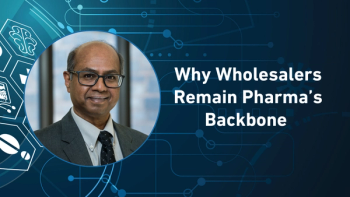
- Pharmaceutical Commerce - March/April 2015
Politics and drugs
Medical marijuana and biosimilars are two topics where 'the will of the people' push decisions
There are two topics in this issue that, in large part, have broad political (as opposed to economic or philosophical) underpinnings, and interestingly, it’s hard to put them on the usual left/right, Democratic/Republican spectrum. The two are
With marijuana, the societal choices have been fairly obvious. After more than a half-century of trying to keep it away from consumers, state governments have realized that the medical applications are the wedge that enabled a consumer marketplace to arise. (It’s interesting to note that until the late 1940s, there were several mainline pharma companies selling cannabis-based healthcare products.) Many US states now allow for some distribution of it; some have gone the whole way toward allowing limited recreational use. And while there have been a handful of synthetic cannabinoid products on the market, there is a body of evidence pointing to some advantages of the plant-derived versions. So: plant-derived cannabinoids are now an established market, but there are still many constraints on widespread use of them. Our report finds that the existing drug-distribution industry—wholesalers, pharmacies and hospitals—are still keeping a wide gap between themselves and the medical marijuana business. (The lack of a uniform federal mandate is the biggest obstacle.) That gap will be bridged first, it seems, by pharmacists and medical doctors. Going forward, either medical marijuana will become a normal part of healthcare products distribution, or it will grow into some kind of parallel industry, located roughly where a lot of other natural food and wellness products distribution occurs today.
The biosimilars topic represents a similar range of choices—just that there’s evidence that it’s being crippled by the current regulatory regime. For more than three decades (since the Hatch-Waxman Act), the “grand bargain” of the pharma industry and American society has been: Industry gets to keep an unrestricted national pricing scheme; society gets to have generic products. But biosimilars—authorized nearly five years ago now, but without a functioning regulatory process to this day—are being fought by the innovator companies at every turn. The issues at the moment are: how much clinical trial testing needs to replicate the trials of the innovator products, and whether biosimilars can have the same labeling as (and thus be interchangeable with) the innovator product. And this is despite the growing body of evidence, from biosimilars’ track record abroad, that the products are effective and can be regulated more or less like small-molecule generics.
Biosimilars are not going away. The trend here points to two outcomes: Either industry stops fighting tooth and nail to prevent biosimilar introductions, or, at some point, the entire pharma pricing and market-access structure comes crashing down. Medical scientists will argue the pharmacokinetics and economists will argue the financial costs and benefits of biosimilars for years to come, but politicians will be making decisions in the not-too-distant future.
Calling a decision “political” is usually a way of denigrating it—to imply, in some fashion, that a backroom deal was struck in opposition to the voice of a significant portion of society. But the pattern over the past decade of medical marijuana legalization has been one of support from patients’ rights groups, states’ rights advocates and general frustration with the problems of law enforcement in the so-called “war on drugs.” With biosimilars, public opinion is muted, probably over the complexity of the debate. But the frustration that consumers have with drug prices is growing louder. Industry is taking a big risk with its resistance to biosimilar commercialization.
Articles in this issue
almost 11 years ago
A conversation with W. Scott Evangelista, Quintilesalmost 11 years ago
Manufacturers: Get ready for global trade account managementalmost 11 years ago
Partnering to diversify yields rapid growthalmost 11 years ago
Campbell Alliance updates, expands its commercial launch consulting servicesalmost 11 years ago
HealthPrize touts its success with 'gamification' in adherence programsalmost 11 years ago
Exostar grows its network of collaborative tools in life sciencesalmost 11 years ago
Rite Aid to buy EnvisionRx, continuing a reshaping of US drug distributionalmost 11 years ago
Preventing and Managing Drug Shortages--PDA Technical Report 68Newsletter
Stay ahead in the life sciences industry with Pharmaceutical Commerce, the latest news, trends, and strategies in drug distribution, commercialization, and market access.




